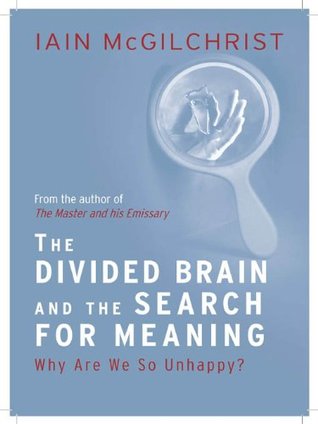More on this book
Community
Kindle Notes & Highlights
Read between
February 19 - February 19, 2025
Our intuitions may be uneasy about some of this, but then is there really a place for intuition any longer? It is often demonstrably misguided, as is bound to be the case, being no more than the relic of an instinctual existence which has outlived its usefulness now that we are able to break free of the world of myth.
For one thing, whatever we know, we cannot know what it would be like in the absence of our knowing it, and different people find different things in the world. Even the same person finds different things on different occasions, when the context or the type of attention changes. That does not mean, of course, that everything that exists owes its nature and existence solely to us. But it does mean that, whether we are scientists or not, we can only know the world as we have inevitably shaped it by the nature of our attention.
We make the world we live in by attending to it in a certain way, by our disposition towards it. Having done so, our experience of it then determines how we attend, and so on. There is no royal road to certainty about what the world is, or what it is like. We all, whether we are poets or scientists, or just going about the business of daily life, have to begin somewhere, by a leap of intuition, as to what kind of thing it might be we are dealing with – not just any leap, of course, always a guided one, but nonetheless fallible and uncertain. Depending on where and how we leap is what we find.
...more
What are the key distinctions? One way of looking at the difference would be to say that while the left hemisphere's raison d'être is to narrow things down to a certainty, the right hemisphere's is to open them up into possibility. In life we need both. In fact for practical purposes, narrowing things down to a certainty, so that we can grasp them, is more helpful. But it is also illusory, since certainty itself is an illusion – albeit, as I say, a useful one.
An important consequence of this narrow-focus attention, aiming for certainty, is that it renders everything explicit. Just as a joke is robbed of power when it has to be explained, metaphors and symbols lose their power when rendered explicit. And metaphor is not a decorative turn, applied on top of the serious business of language in order to entertain: all thinking, most obviously philosophical and scientific thinking, is at bottom metaphorical in nature, though we are so familiar with the metaphors that we don't notice their existence. It is the metaphors which provide the ‘something else’
...more
The left hemisphere is not in touch with reality but with its representation of reality, which turns out to be a remarkably self-enclosed, self-referring system of tokens.
You may know the ‘Ship of Theseus’ paradox, also known as the ‘Growing Paradox’, because it arises in the case of all living things. It goes like this: the ship in which Theseus returned to Athens from his exploits in Crete was preserved there in the harbour as a memorial. With time the timbers perished one by one and were replaced, so that after thirty years none of the original timbers remained. Was this still the Ship of Theseus? This is an analogue of the problem that few of the cells in my body were there a year ago – so is it still my body? To anyone seeing the whole, and who realises
...more
the left hemisphere sees truth as internal coherence of the system, not correspondence with the reality we experience.
I am constantly reminded, as I go about life in the modern Western world, of a story by Yuri Tynyanov, called Lieutenant Kizhe. Published in 1927, the story concerns an error of transcription in an official list of the Imperial army, whereby the word poruchiki, lieutenants, gets conflated with a subsequent syllable zhe, seeming to refer to a certain poruchik Kizhe, a Lieutenant Kizhe – who never existed. Despite this apparent drawback, Lieutenant Kizhe plays a starring role in subsequent military reports, rises through the ranks, where he never gets into trouble and is known for his
...more
It is not reasonable. It is angry when challenged, dismisses evidence it doesn't like or can't understand, and is unreasonably sure of its own rightness. It is not good at understanding the world. Its attention is narrow, its vision myopic, and it can't see how the parts fit together. It is good for only one thing – manipulating the world. Its world is a representation, a virtual world, only. It neglects the incarnate nature of human beings, reducing them to the equivalent of brains in a vat. It reduces the living to the mechanical. It prioritises the procedure, without a grasp of its meaning
...more
Meaning emerges from engagement with the world, not from abstract contemplation of it.


